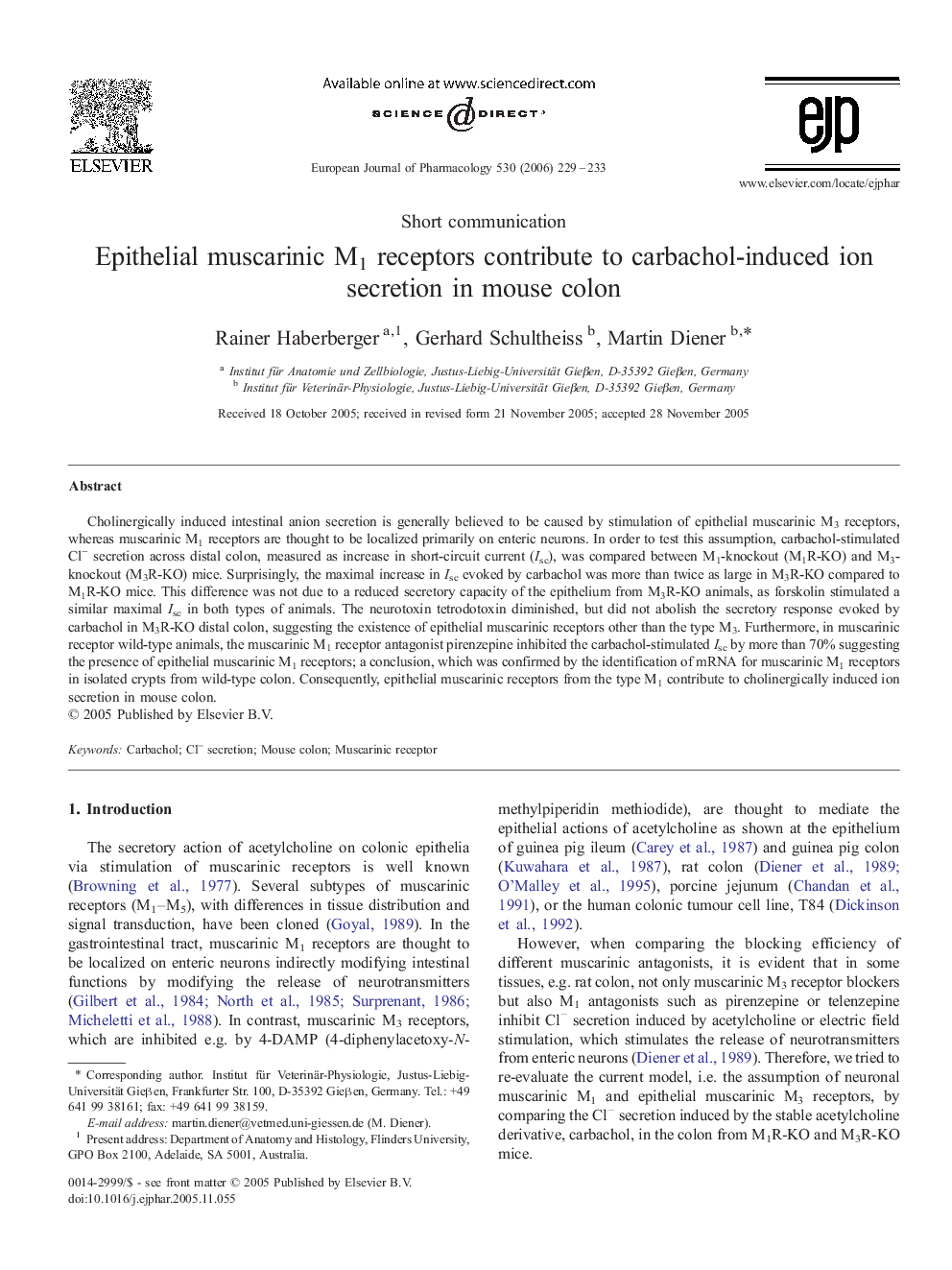| کد مقاله | کد نشریه | سال انتشار | مقاله انگلیسی | نسخه تمام متن |
|---|---|---|---|---|
| 2537447 | 1559191 | 2006 | 5 صفحه PDF | دانلود رایگان |

Cholinergically induced intestinal anion secretion is generally believed to be caused by stimulation of epithelial muscarinic M3 receptors, whereas muscarinic M1 receptors are thought to be localized primarily on enteric neurons. In order to test this assumption, carbachol-stimulated Cl− secretion across distal colon, measured as increase in short-circuit current (Isc), was compared between M1-knockout (M1R-KO) and M3-knockout (M3R-KO) mice. Surprisingly, the maximal increase in Isc evoked by carbachol was more than twice as large in M3R-KO compared to M1R-KO mice. This difference was not due to a reduced secretory capacity of the epithelium from M3R-KO animals, as forskolin stimulated a similar maximal Isc in both types of animals. The neurotoxin tetrodotoxin diminished, but did not abolish the secretory response evoked by carbachol in M3R-KO distal colon, suggesting the existence of epithelial muscarinic receptors other than the type M3. Furthermore, in muscarinic receptor wild-type animals, the muscarinic M1 receptor antagonist pirenzepine inhibited the carbachol-stimulated Isc by more than 70% suggesting the presence of epithelial muscarinic M1 receptors; a conclusion, which was confirmed by the identification of mRNA for muscarinic M1 receptors in isolated crypts from wild-type colon. Consequently, epithelial muscarinic receptors from the type M1 contribute to cholinergically induced ion secretion in mouse colon.
Journal: European Journal of Pharmacology - Volume 530, Issue 3, 20 January 2006, Pages 229–233